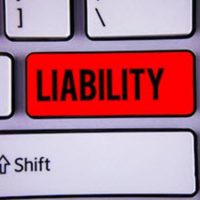What Is Florida’s Dangerous Instrumentality Doctrine?

It is not uncommon for people to allow their friends or family to borrow their vehicle, but what many do not know is that in Florida, they may still be on the proverbial hook if their friend or family member negligently causes an accident. Florida observes what is known as the dangerous instrumentality doctrine, which holds a vehicle owner liable for the negligence of the person in the car, even if they were not present in the accident itself. If you are in a position where you may be liable for another person’s injuries under this doctrine, contacting an experienced attorney can help.
“Permissive Use” Is Required
While cars are the vehicle most often involved in accidents of this type, several different types of vehicles can be classified as ‘dangerous instrumentalities.’ Boats, trailers, motorcycles and airplanes are some of the other common examples, but almost anything on two or four wheels may qualify. However, the use of someone else’s vehicle must be permissive – in other words, the owner must have given their permission (express or implied) to the borrower for the doctrine to apply. If your car is stolen, for example, you are not liable for any accidents caused by the thief, because you did not grant permission for the vehicle’s use.
There are exceptions to the doctrine – the so-called “shop rule,” when a vehicle is entrusted to a repair shop, is one of them – but the majority of the time, if you have given permission for your vehicle’s use, and the borrower causes an accident, you will be held liable for the damage and/or injuries they cause. This doctrine is known as ‘strict vicarious liability’ – the rationale is that vehicles are inherently dangerous unless operated correctly, and in allowing someone else to use your vehicle, you are vouching for them.
Long-Term Liability Can Be Extremely Expensive
In addition to potential liability occurring if you allow someone to borrow your car, this can also have ramifications for anyone who is listed on your vehicle’s certificate of title. Liability can only attach to someone who has an “identifiable property interest” in a vehicle – and being listed on the title establishes that interest. For example, some parents may choose to put a dependable teenage driver on the title to grant them ongoing permission to use the car – but this means that they are then (at least in theory) liable in any accident caused by any of the vehicle’s drivers.
One thing to keep in mind if you wind up the object of a dangerous instrumentality lawsuit is that there are limits on the amount of damages one may collect. A vehicle owner in Florida can be held liable for up to $100,000 per person and $300,000 per incident for bodily injury, and $50,000 for property damage on their own. However, if the “permissive user” of their vehicle (the one who caused the accident) is either uninsured or has insurance worth less than $500,000 cumulatively, the owner will be on the hook for up to that amount of economic damages. In short, if you lend your vehicle to the wrong person, the financial consequences can be life-changing in the worst way.
Contact A Tampa Auto Accident Lawyer
A vehicle is considered a dangerous instrumentality because of the high potential for injury and property damage if it is operated by the wrong person. In order to minimize the risk of accident, Florida state law sends a harsh message not only to dangerous drivers, but also to those who put them in a position to cause harm. If you are in a position where a ‘dangerous instrumentality doctrine’ lawsuit is in your future, contacting an experienced Tampa car accident attorney from the Rinaldo Law Group can help to get your questions answered. Call our office today for a free consultation.
Resource:
casetext.com/case/so-cotton-oil-co-v-anderson












